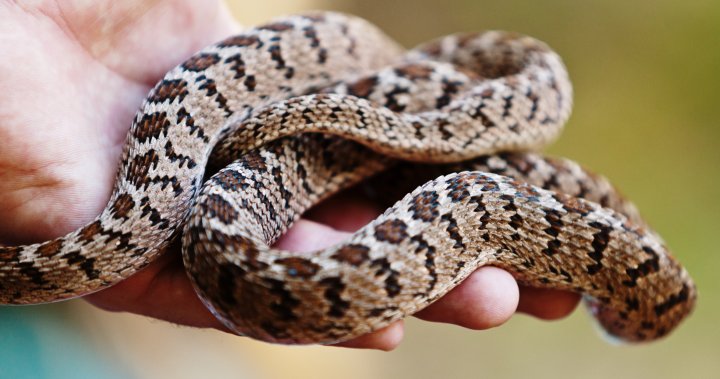An ongoing salmonella outbreak in Canada linked to snakes and rodents has killed one person and hospitalized 10 others, the Public Health Agency of Canada says.
In a public health notice Tuesday, PHAC said at least 70 cases in eight provinces have been confirmed, as of March 19, in an outbreak that dates back to 2022.
The cases have been reported in British Columbia, Alberta, Saskatchewan, Manitoba, Ontario, Quebec, New Brunswick and Newfoundland and Labrador.
“Many of the individuals who became sick reported direct or indirect contact with snakes and feeder rodents (used as reptile food) before their illnesses occurred,” PHAC said in its notice.
“Some people who became sick did not touch or handle the snakes or feeder rodents themselves, but lived in the same house where they were kept.”
The illnesses occurred between February 2022 and February 2024.
According to PHAC, an investigation was launched last spring due to a rise in reports of salmonella illnesses in several provinces.
Officials used a laboratory method called whole genome sequencing to confirm that some of the salmonella cases dating back to 2022 were caused by the same outbreak strain as more recent cases.
A common source or supplier of products linked to the outbreak has yet to determined.
“The outbreak is ongoing and recent illnesses continue to be reported to PHAC,” the agency said.
This is not the first time that a salmonella outbreak linked to snakes and rodents has been detected in Canada.
The latest health and medical news
emailed to you every Sunday.
The latest health and medical news
emailed to you every Sunday.
Between April 2017 and November 2020, a total of 106 people were infected in seven provinces.

Salmonella is a bacterial infection commonly transmitted through contaminated food and water and it poses a significant health threat, especially to children and older adults, as it can lead to severe gastrointestinal symptoms, dehydration, and, in extreme cases, death.
People can also get sick with salmonella infection by directly touching reptiles and rodents and their food and environment, as well as through indirect contact by touching contaminated surfaces where these animals are kept. This could happen at birthday parties, school or daycare events, museums, science centres, zoos, or at a travelling reptile show, PHAC said.
To prevent infection, the agency has the following advice among other recommendations in its public health notice:
- always wash your hands thoroughly with soap and water immediately after touching a reptile or rodent, and anything they eat, or after being in the area where they live, play or touch
- if visiting an exhibit or event with reptiles or rodents, wash your hands when you leave animal areas, even if you do not touch the animals directly
- clean any surfaces or objects your reptile or rodent touches with soapy water followed by a household sanitizer
- never kiss a pet reptile or rodent
- always supervise children when they touch or play with reptiles or rodents
- keep reptiles and rodents and all their food, containers, enclosures, and any objects that have been in their enclosures, such as plants or enrichment items, away from the kitchen and other places where food is made or eaten
- clean or bathe reptiles or rodents in a dedicated plastic bin, not in the kitchen or bathroom sink

Symptoms of salmonella infection typically start between six and 72 hours after exposure and can last anywhere from four to seven days, according to PHAC. They may include fever, chills, nausea, vomiting, diarrhea, headache, or abdominal cramps.
If you suspect you have salmonella, PHAC recommends seeing a health-care provider.
Most people recover on their own without any medical treatment, the agency said.
However, because salmonella can lead to severe dehydration, an emergency room visit may be necessary. There is also the risk of severe illness if the infection has gone beyond the intestines, and antibiotics may be needed.
— with files from Global News’ Katie Dangerfield
© 2024 Global News, a division of Corus Entertainment Inc.




